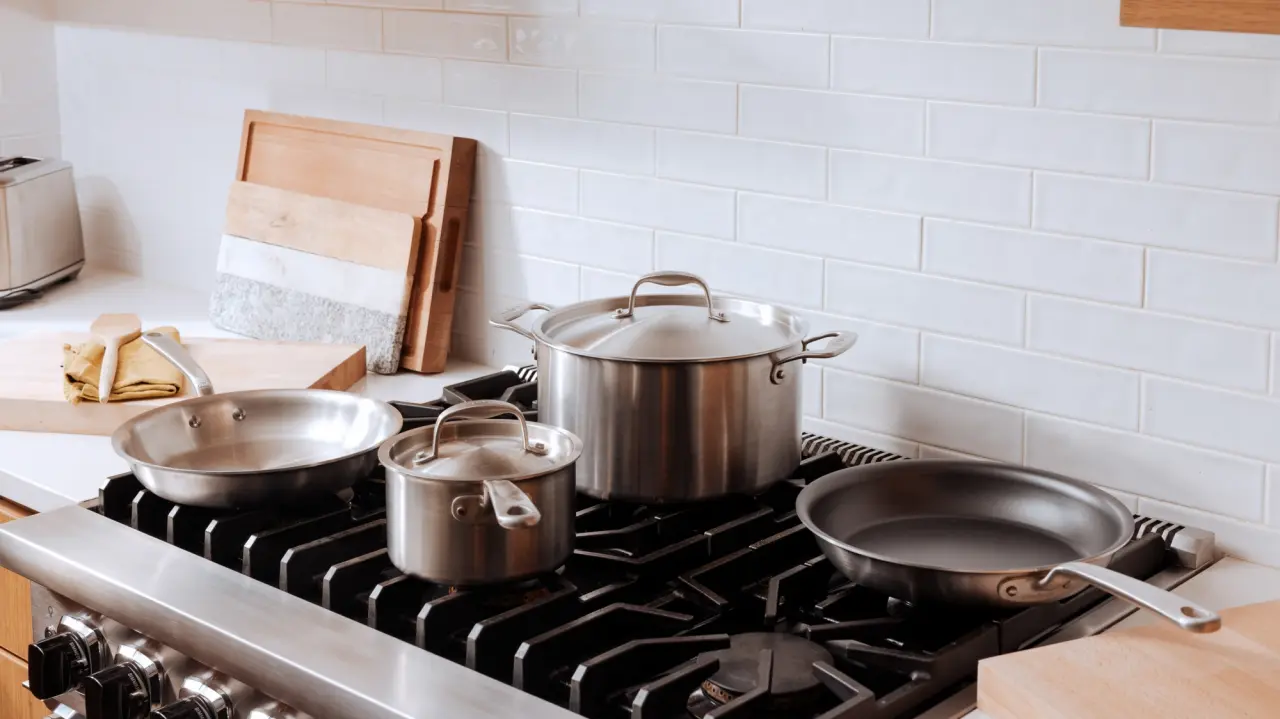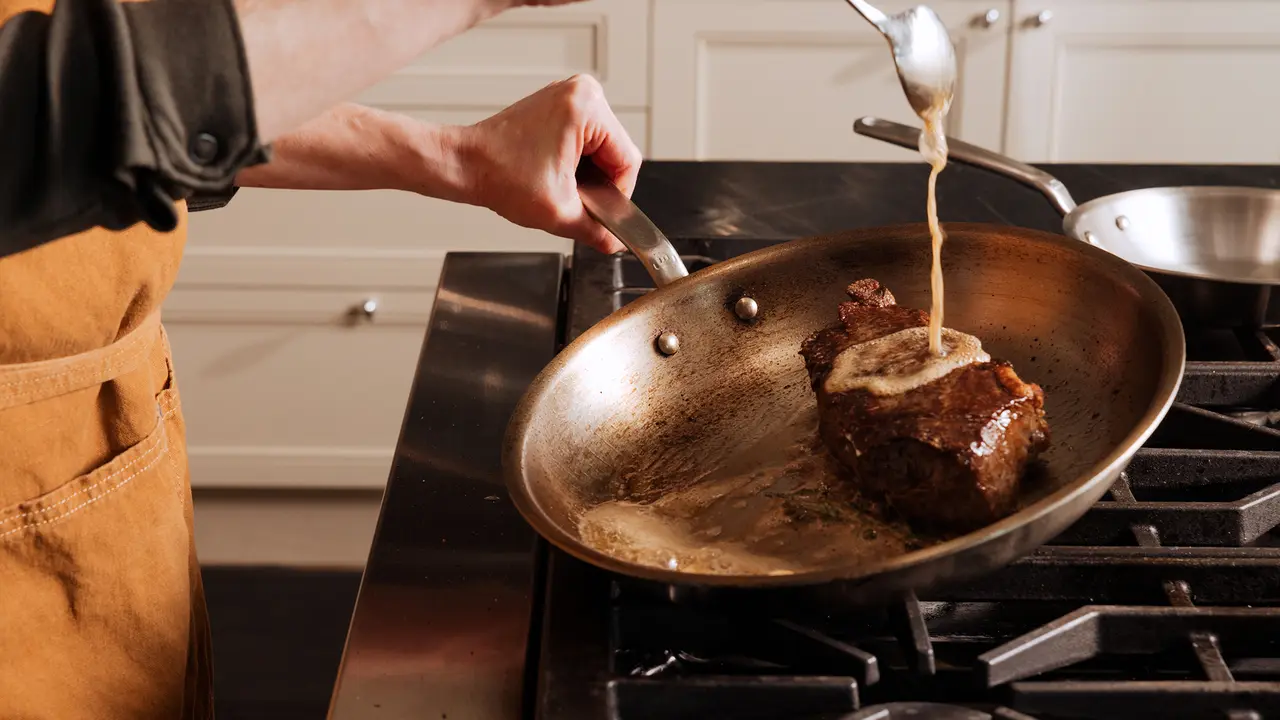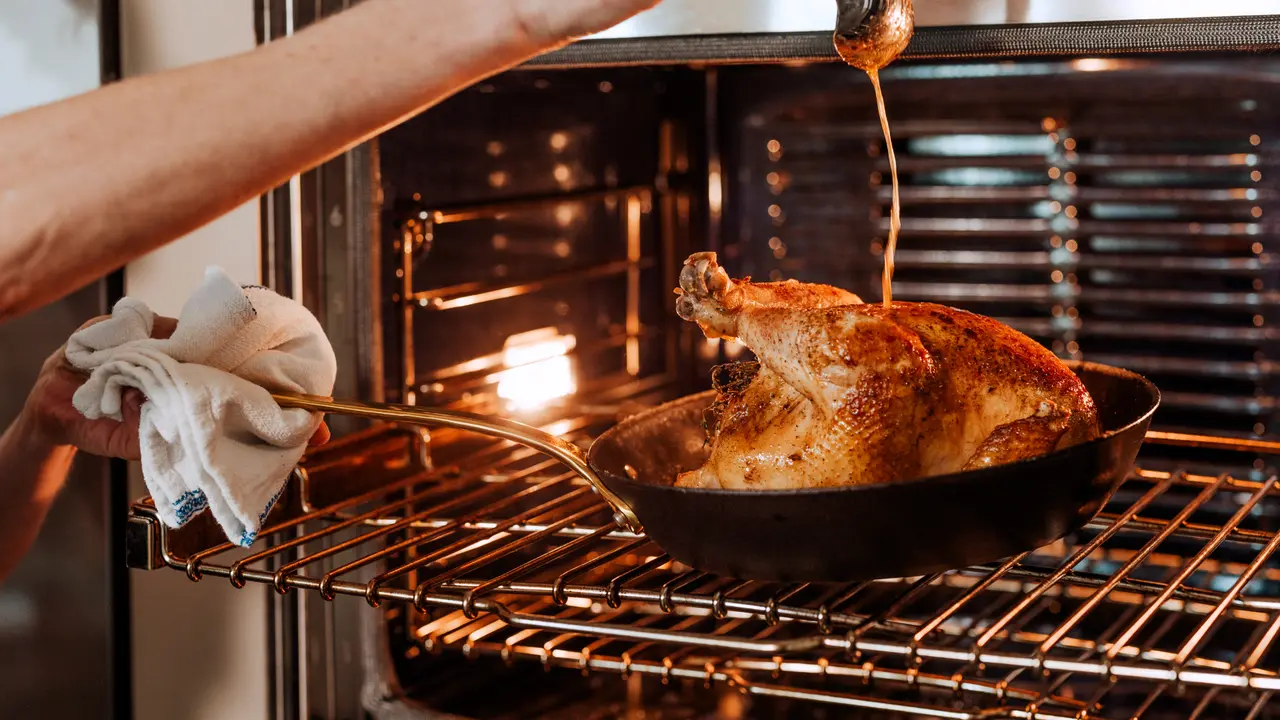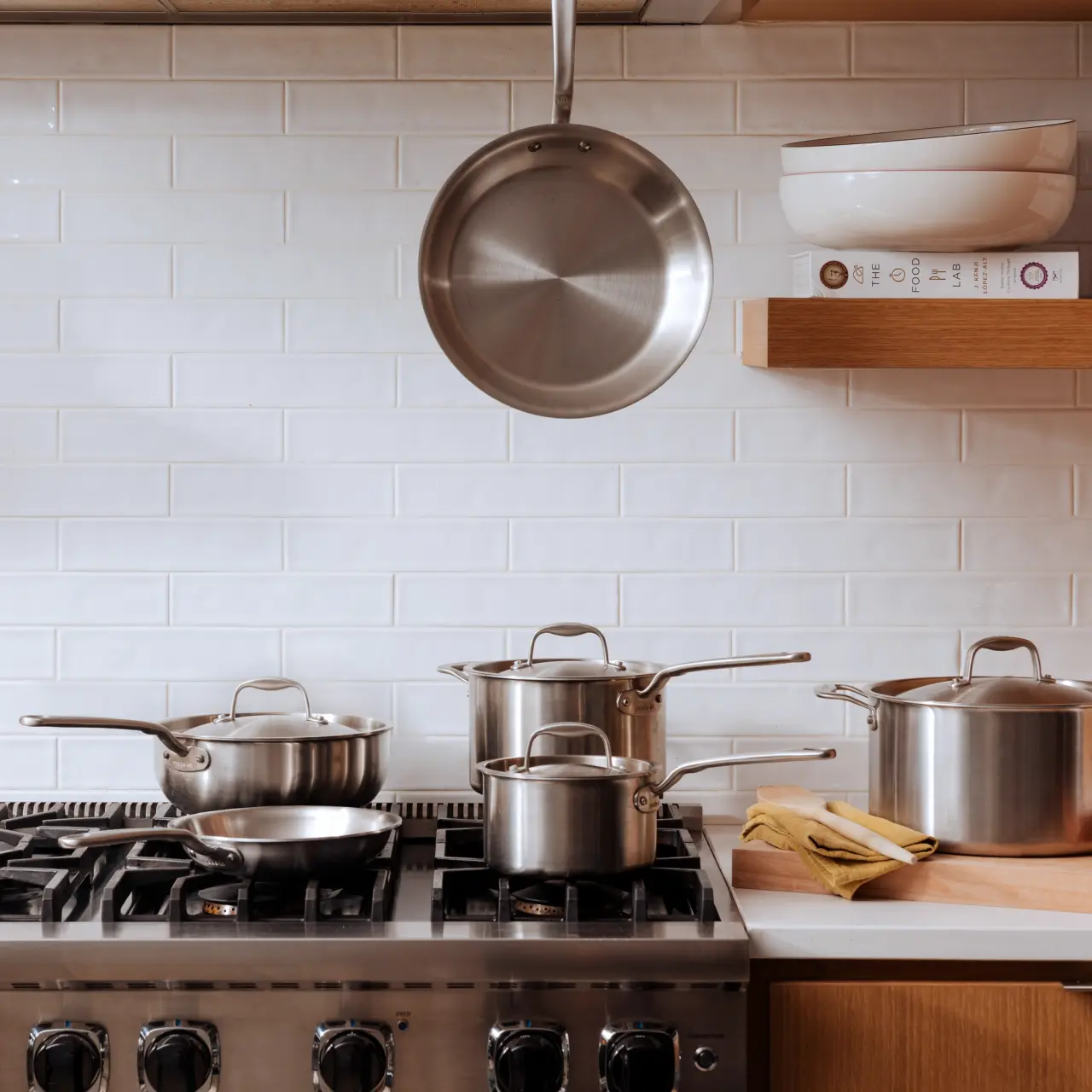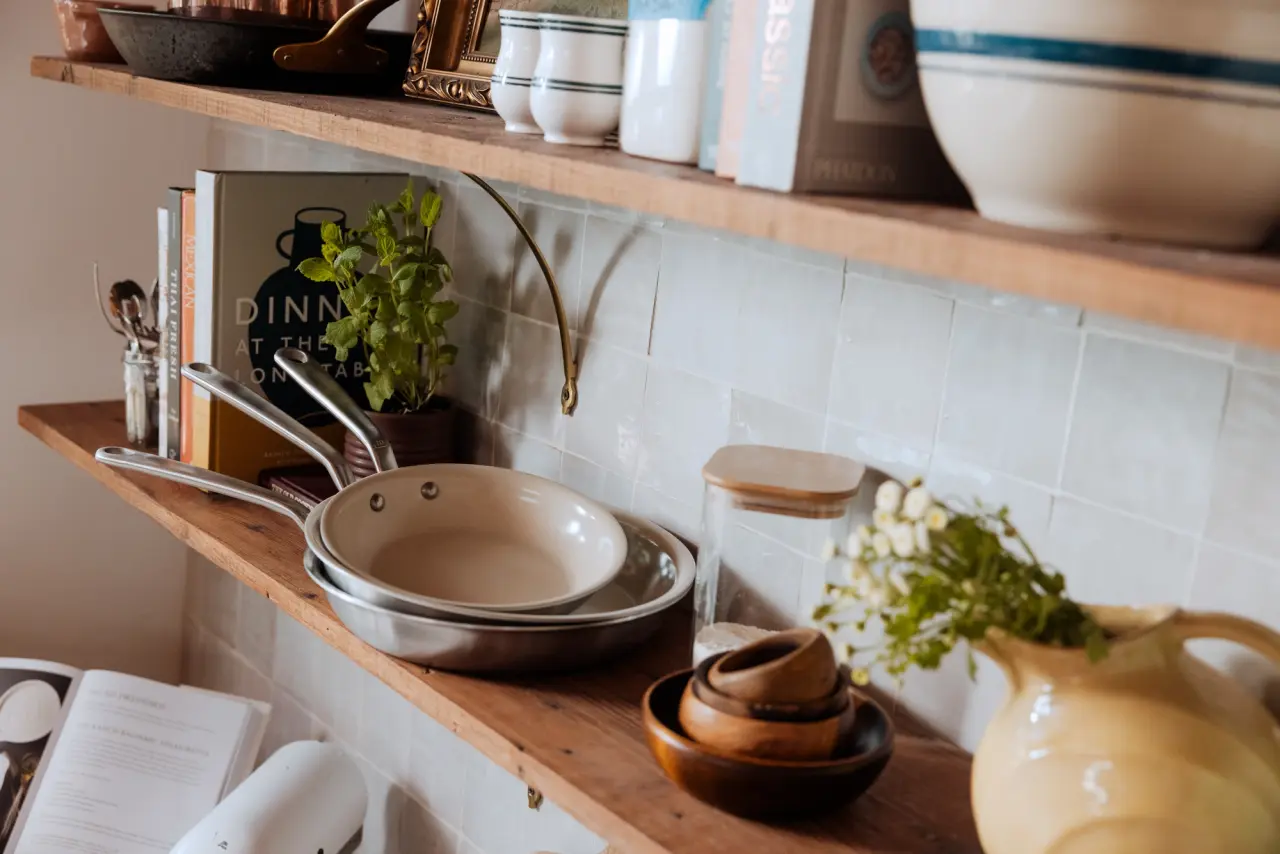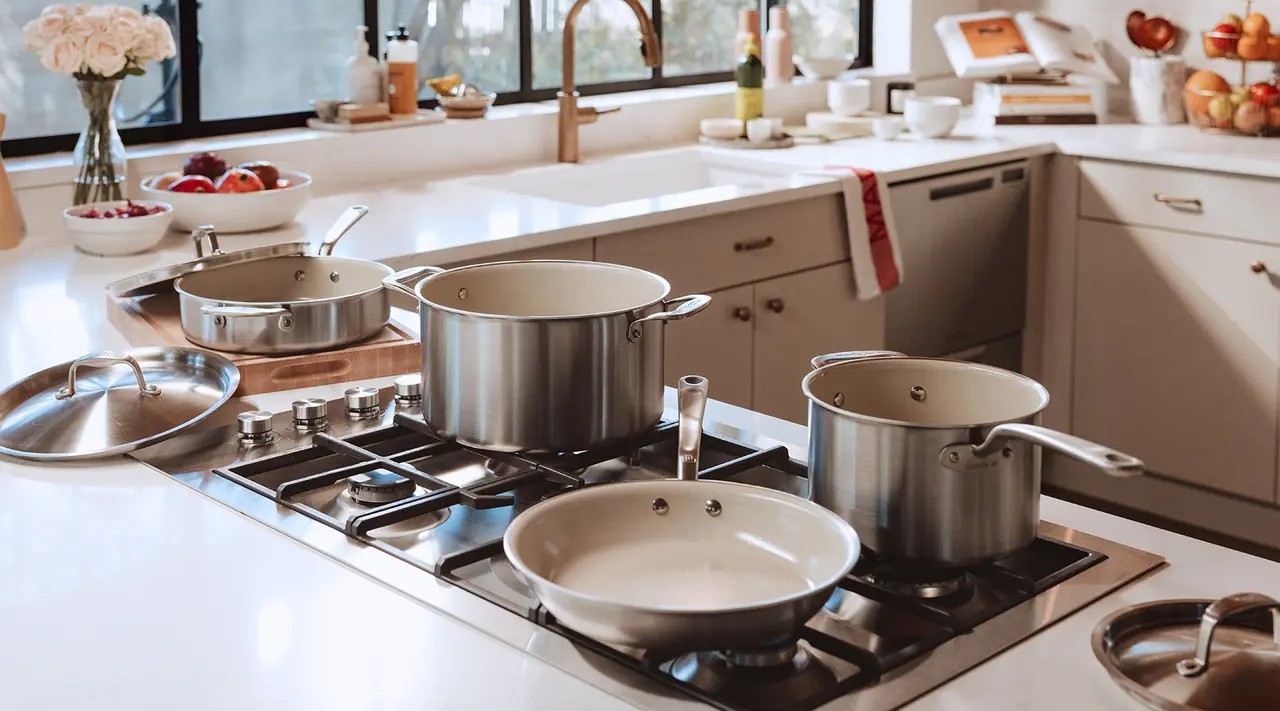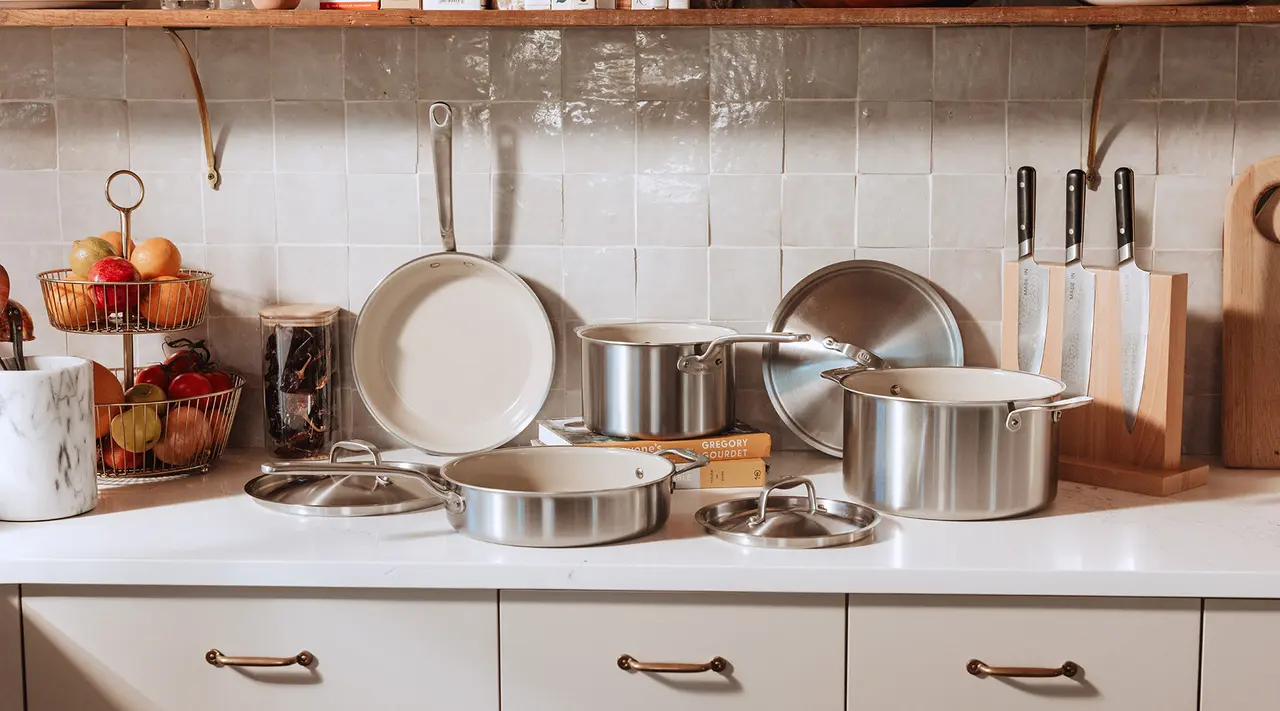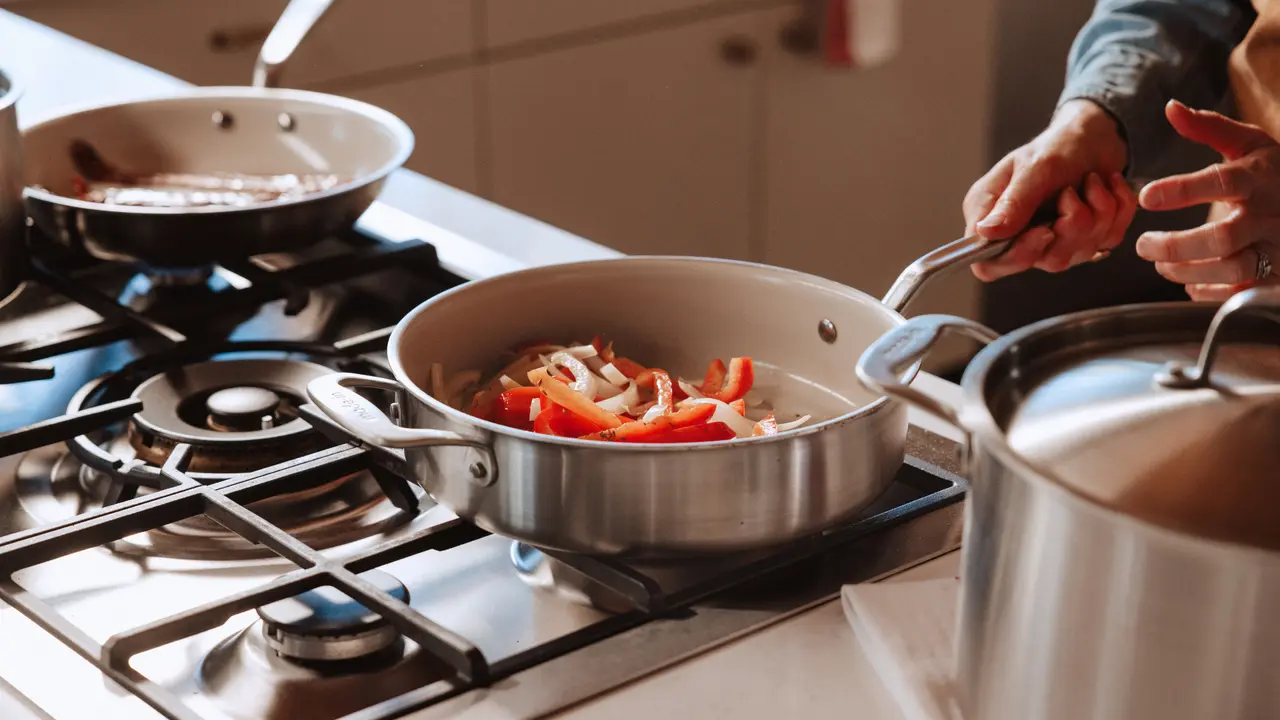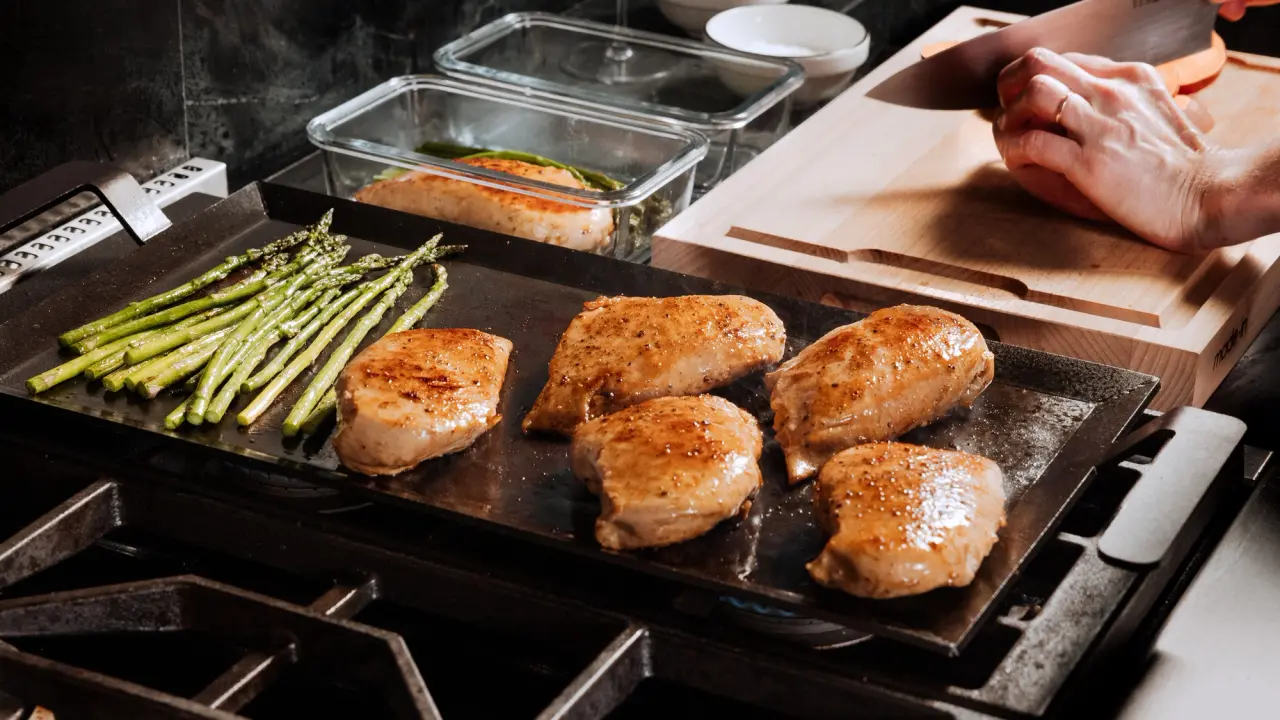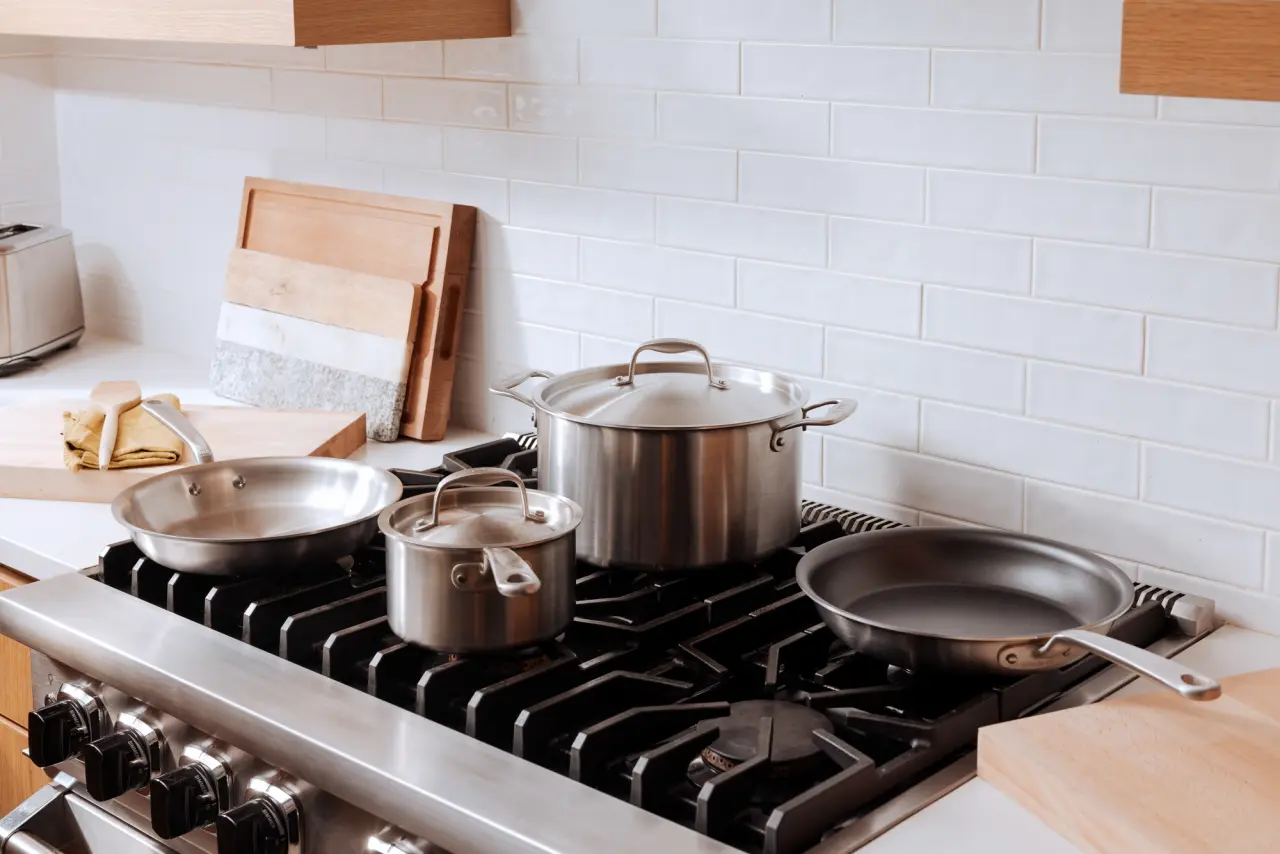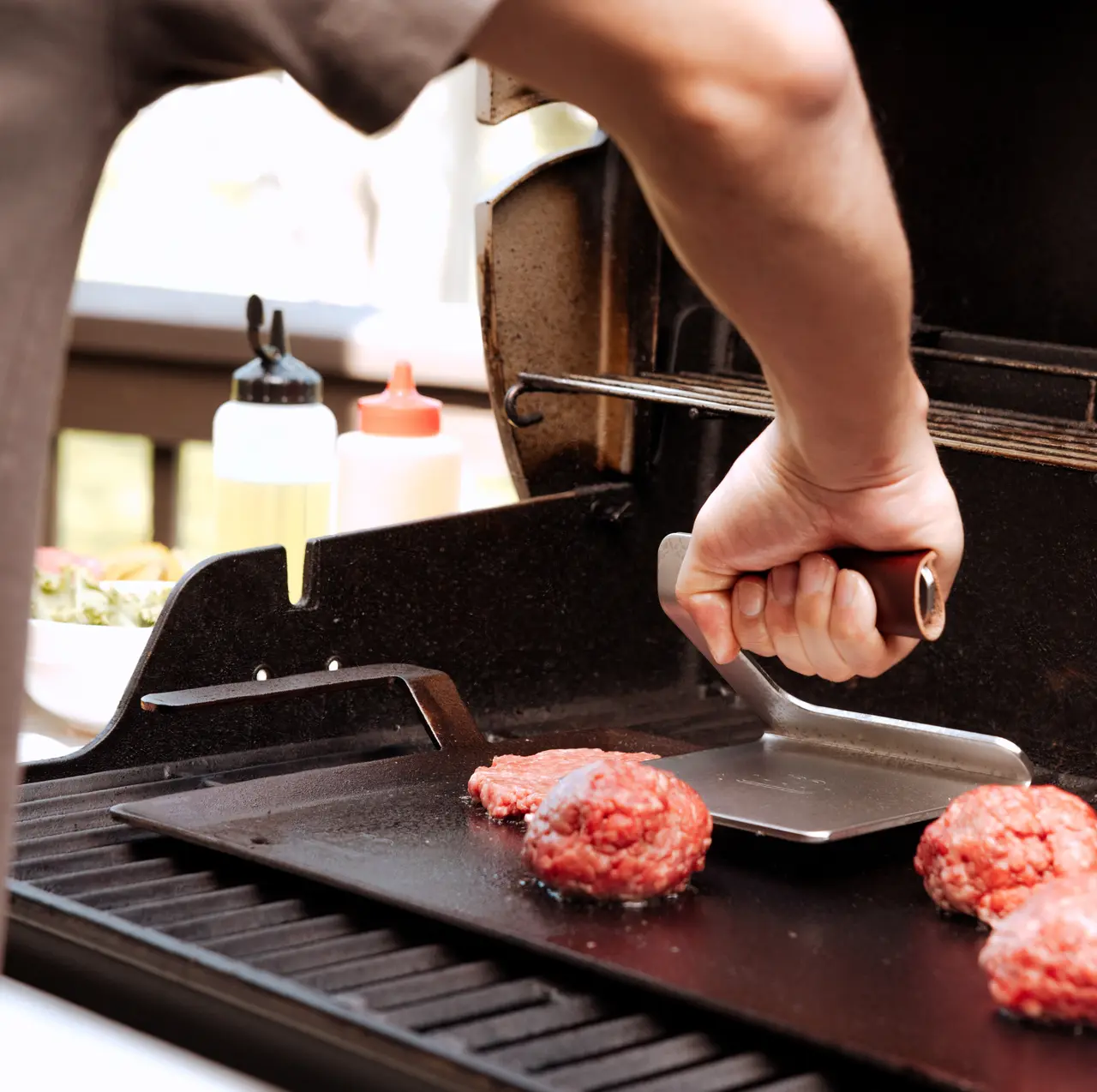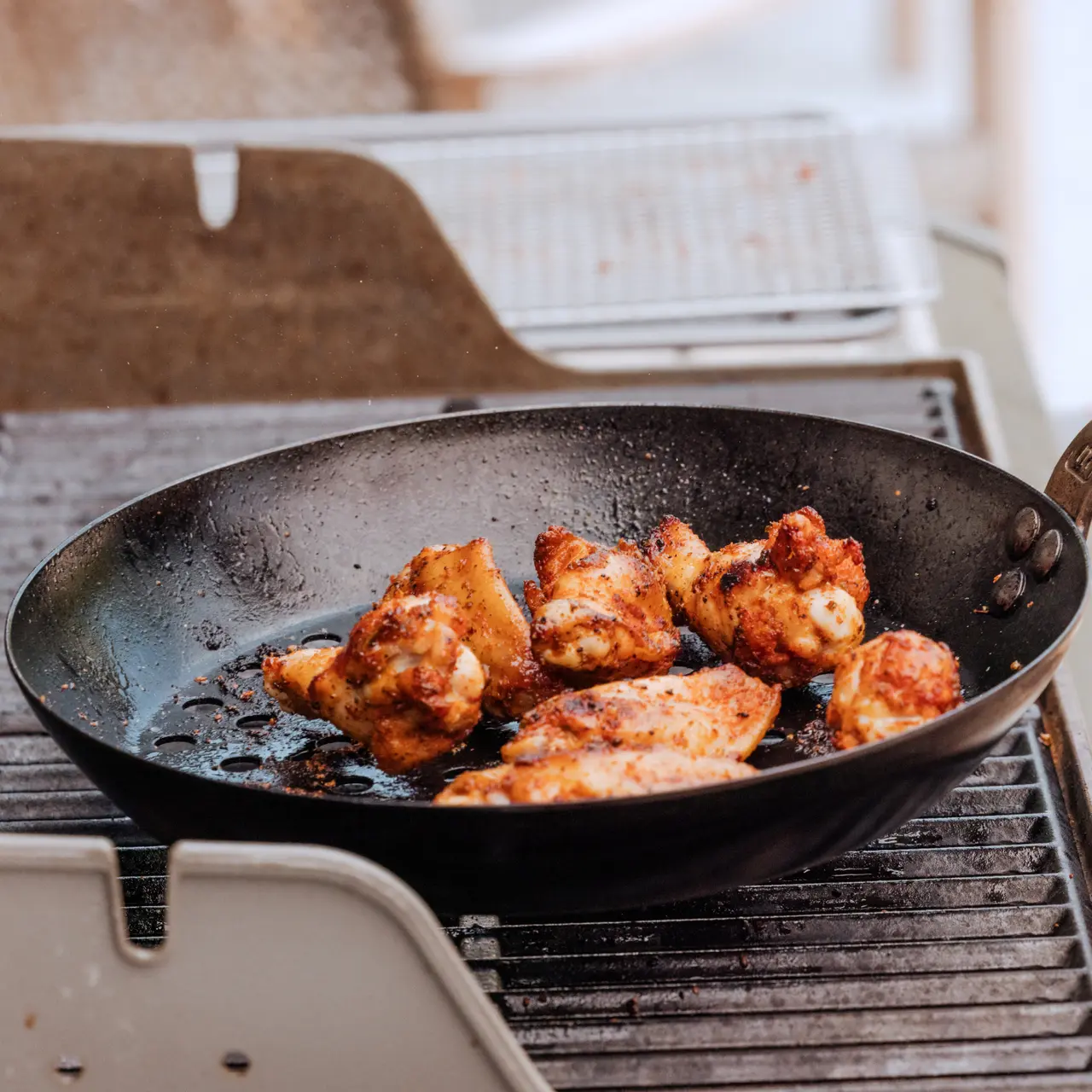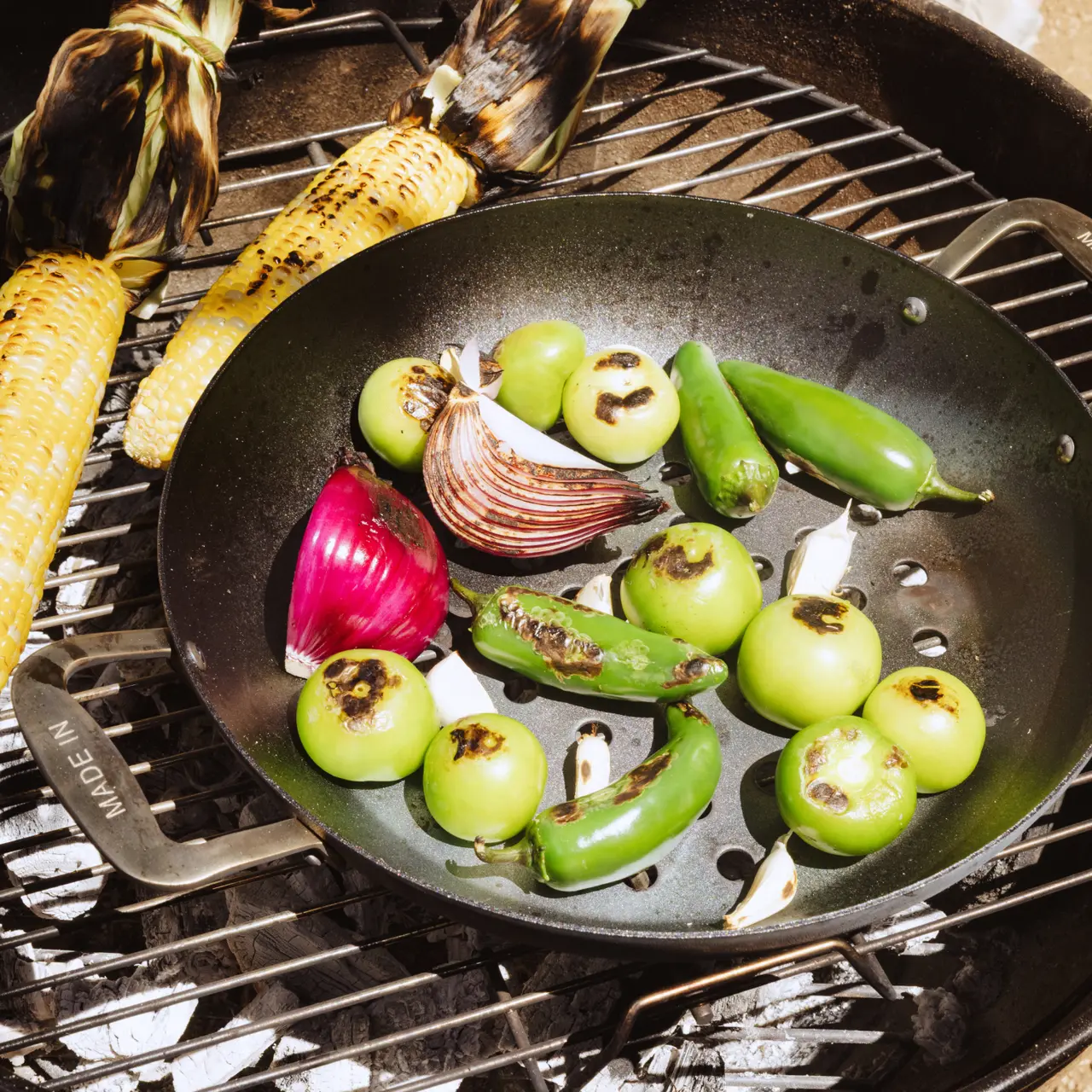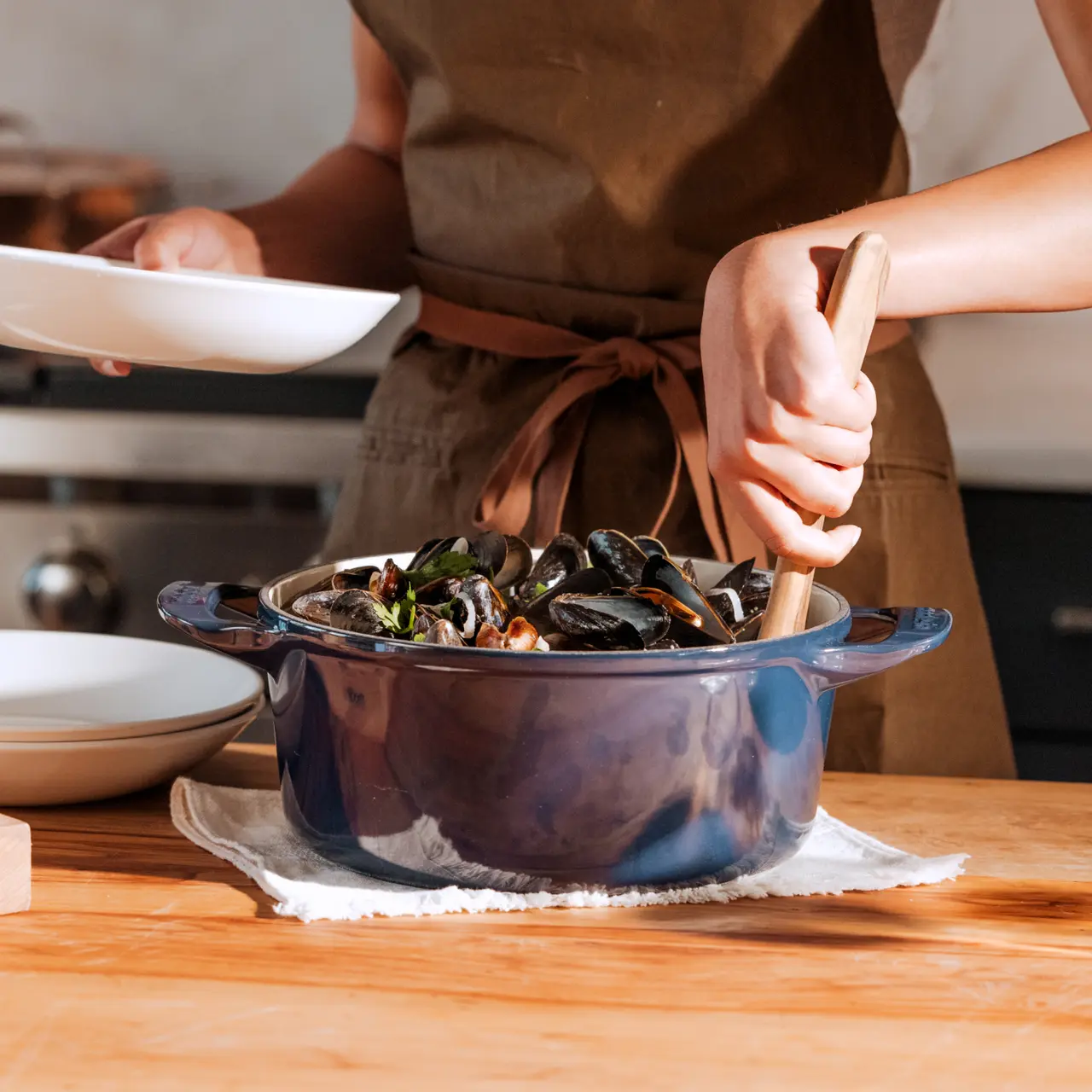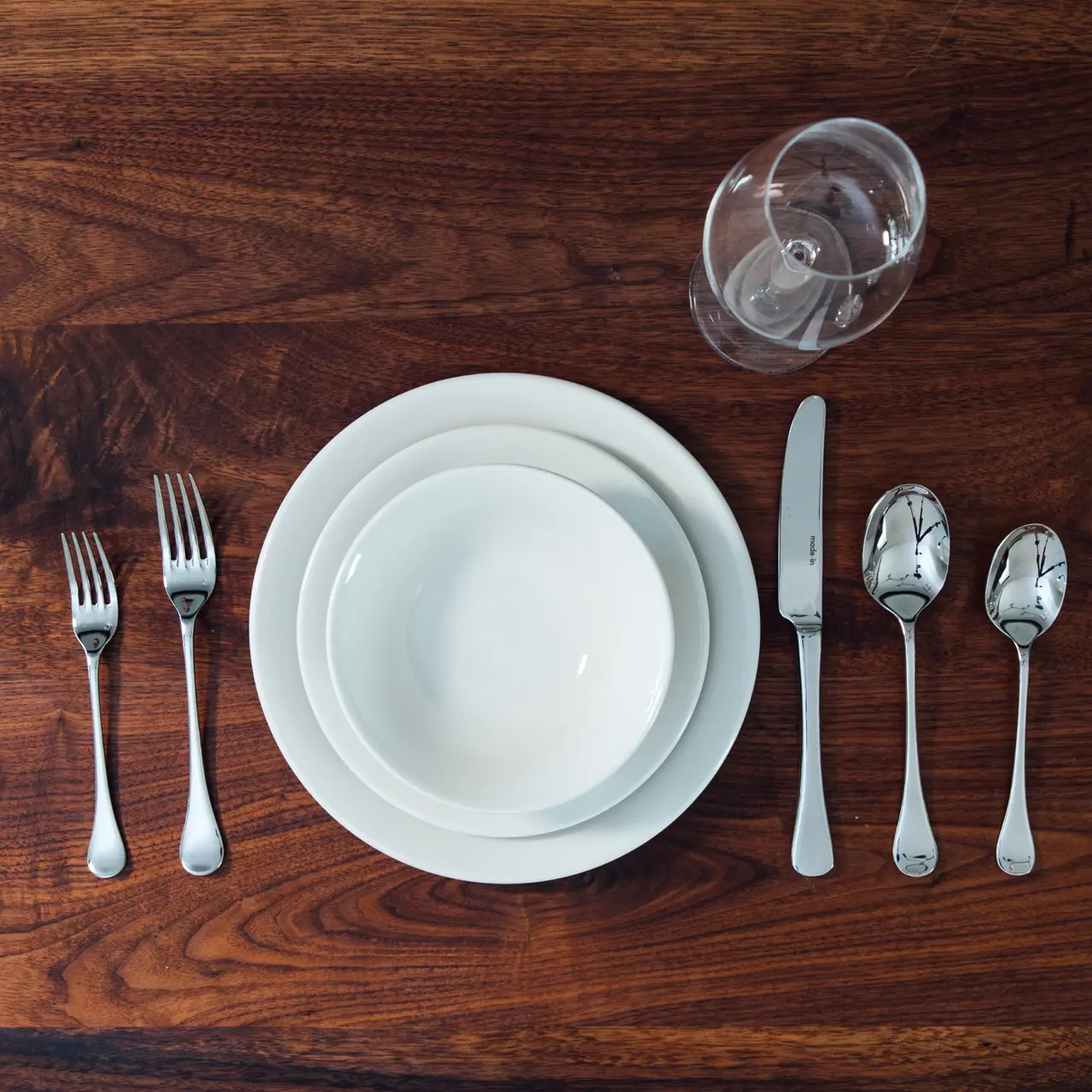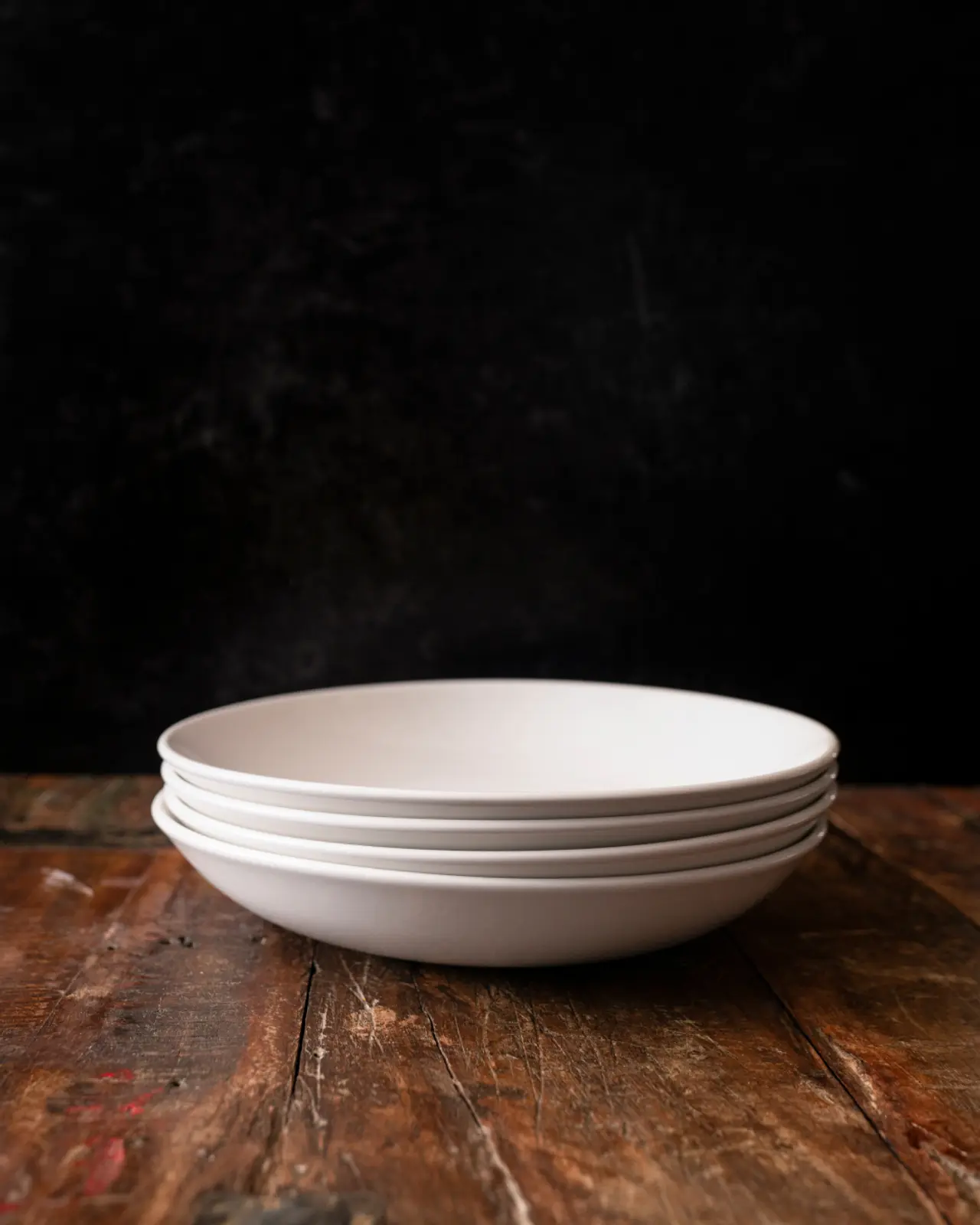Cooking on a gas stove is preferential for many home cooks. Not only does a gas stove tend to distribute heat more rapidly and evenly than an electric cooktop, but gas also allows for more precise temperature control while cooking. And while it's true that you can technically use just about any cookware on a gas stove that you would on an electric cooktop, the reality is that not all cookware is designed to stand up to the direct flame of a gas stove.
If you’re looking to equip your kitchen with the best cookware for use on your stove, we're going into detail on the best cookware materials for gas stoves as well as the importance of choosing the right cookware for your kitchen.
Does Certain Cookware Need to Be Used on Gas Stoves?
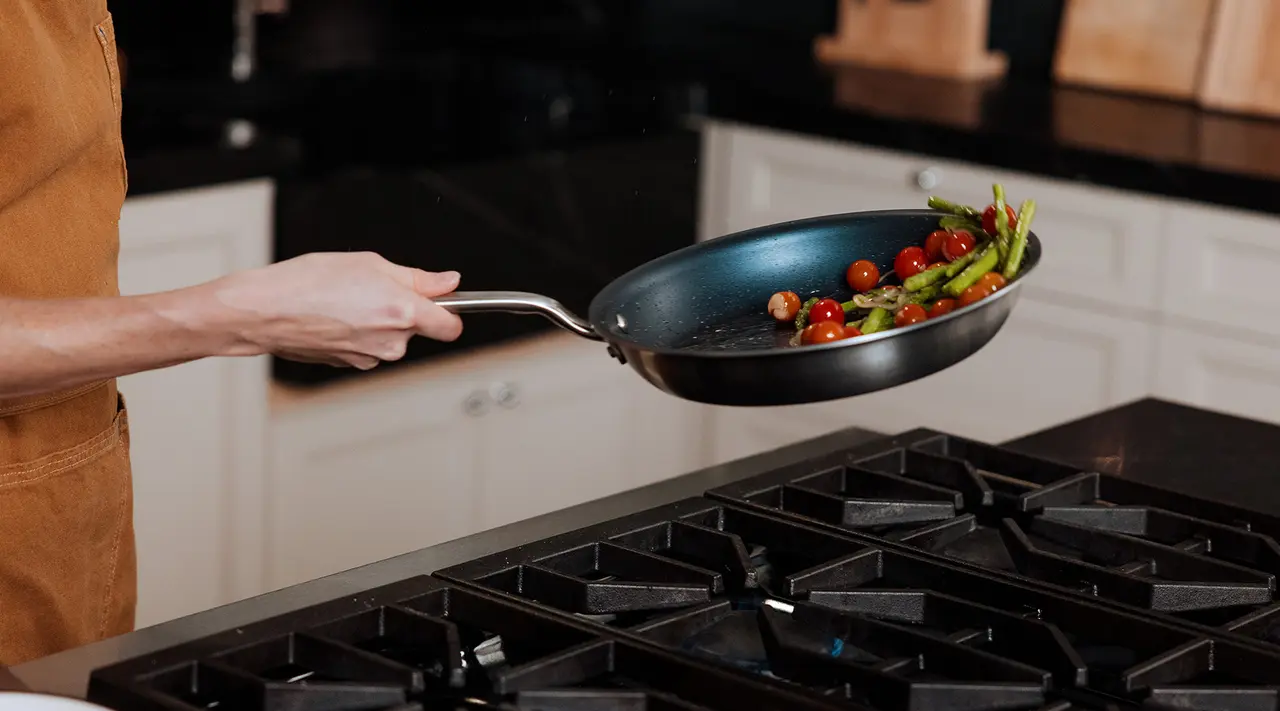
Whereas an electric cooktop heats up slowly, a gas stove delivers almost immediate and intense heat directly through a flame emitted from the burner itself. This sudden exposure to high levels of heat can cause damage (typically scorch or burn marks on the bottom/sides) to some cookware over time, especially if it has been cheaply made.
You can technically use any cookware on a gas stove, but the results may vary based on the quality of the cookware itself. When cookware isn't made to stand up to gas cooking, you may also notice that it warps over time, becomes discolored along the outer surface, or even develops holes. Poor quality cookware may also result in uneven cooking, leaving your food burnt in some areas and undercooked in other parts.
Cooking With Gas vs. Induction
Gas cooking differs from induction cooking in that the latter transfers heat directly to metal cookware. As a result, induction cooking requires that cookware be made of very specific ferromagnetic materials.
Best Cookware for Gas Stoves

Now that you know why some materials are recommended for cooking on gas stoves while others aren’t, let’s explore some options that are well-suited for usage on gas stoves.
Easiest to Use: Non Stick
Like other ur ProCoat Non Stick Pans come equipped with multiple layers of durable coating atop
Non stick pans feature coating applied atop a metal base (usually stainless steel or aluminum) for their signature no-stick construction. Both our CeramiClad™ and ProCoat Non Stick Collections features multiple layers of durable coating over our Award-Winning Stainless Clad base, designed to work beautifully whether you're cooking on a gas or induction stove.
A stainless base is best for non stick used on gas stoves as it's incredibly responsive—a must have when cooking delicate ingredients on a coated pan. We also love
Best Heat Retention: Carbon Steel
Another great option for gas cooking is carbon steel cookware, made of a durable, high-heat optimized material that can handle any heat source, from open flame to grill grates. Carbon steel offers many of the same benefits of cast iron, but at a lower weight and with less maintenance. Carbon steel also offers a non-stick coating once properly seasoned (or when you purchase a preseasoned pan), which makes for easy cooking, cleaning, and maintenance, no matter if you're using a frying pan or griddle.
Best for Experienced Home Chefs: Stainless Steel
Typically, stainless pots and pans are layered (or "cladded") with other materials, like copper or aluminum, since stainless steel on its own is a poor heat conductor. Home and professional chefs alike enjoy that our Stainless Clad Cookware is lightweight and easy to work with, while retaining a sleek look in the kitchen. Likewise, stainless cookware is versatile in that it can be used both on the stovetop and in the oven itself.
One factor to be aware of when cooking with stainless steel (especially on gas stoves) is that food can easily stick to the bottom of a stainless pan and burn—be sure to follow the visual cues of your food and flip it when it's released from the pan instead of forcing it off.
Best Classic Option: Cast Iron
Made of a combination of iron and carbon, cast iron pots and pans are among the most durable cookware material out there. These are great for conducting heat evenly, making them ideal for use on gas stoves. Plus, they're durable enough to be used on both stove tops and in ovens.
Despite being heavier than a stainless or carbon steel pan, our Enameled Cast Iron Cookware offers excellent heat retention (though do be aware that cast iron does not respond as quickly to temperature changes). With a little care, this type of cookware can easily last for generations.
Cookware Qualities for Use on Gas Stoves
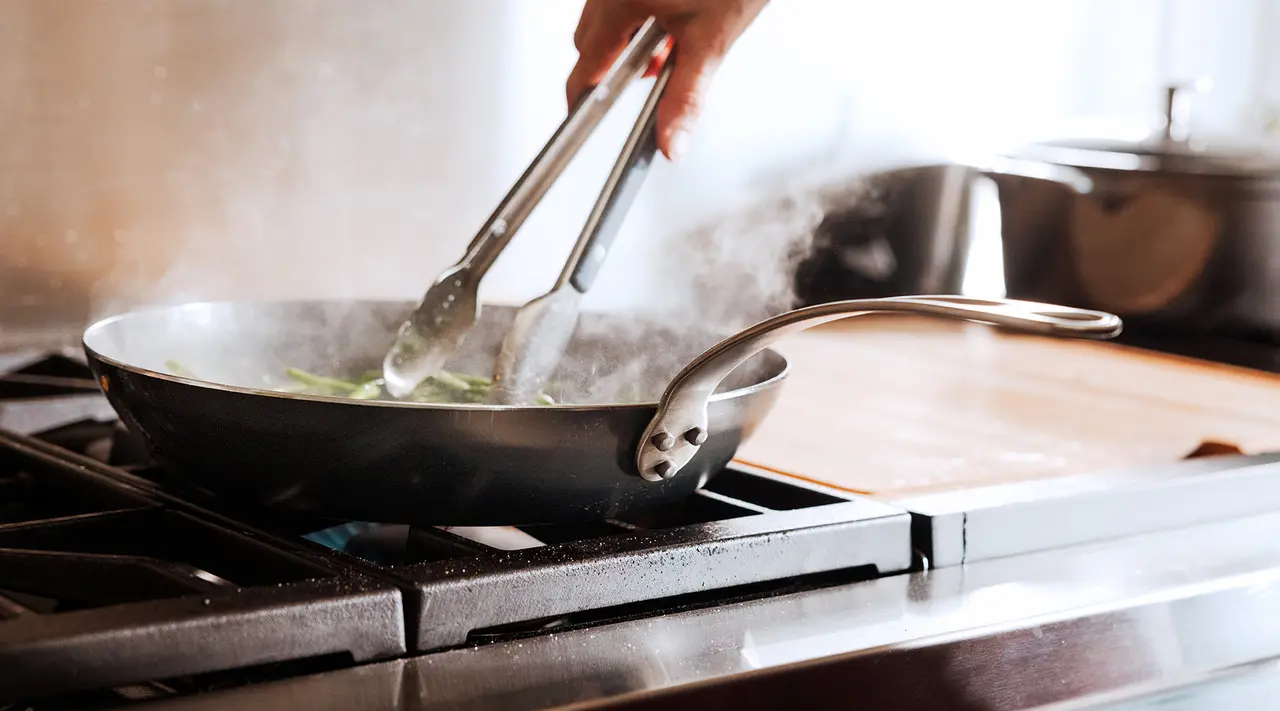
When shopping specifically for cookware to be used on a gas stove, you should generally look for options that will deliver the best heat retention, stand up to rapid temperature changes, are made of multiple plies (layers of material)—and, if aesthetics are important to you, are darker in color to avoid visual discoloration.
Ready to Cook?
When you choose the right cookware for a gas stove, your dishes will turn out even better. Whether you end up going with Carbon Steel, Stainless Steel, Cast Iron, or Non Stick, we have you covered with options that are designed to last a lifetime.
